Dian Small, founder of the Cultural Architect and former RIBA London regional director speaks to Mary Richardson about her latest role heading up a new programme at the London School of Architecture and why she is so excited about the scheme’s potential to unleash real change for underrepresented practitioners in the built environment

The challenges facing small and underrepresented practices in the built environment are often compounded by systemic barriers that persist even as firms grow. Many young practices, particularly those five to 10 years into their journey, find themselves stuck at a critical juncture – unable to convert public and private procurement opportunities into meaningful contracts.
Tackling these issues head-on is the aim of a bold new initiative led by Dian Small at the London School of Architecture (LSA). Designed to empower a diverse range of practitioners and address the chronic underrepresentation in the sector, the programme seeks to deliver practical solutions to ensure these practices can take the next step in their development.
Good Growth in Practice
Small, former RIBA London regional director, has long been a champion of inclusion within the built environment. Her latest role is heading up LSA’s Good Growth in Practice scheme – a one-year, fully funded pilot programme being run in partnership with the Greater London Authority (GLA) and The Crown Estate.

The programme is an evolution of the mayor of London’s Good Growth by Design programme, which aims to shape a better city by promoting quality and inclusion in the built environment. Good Growth in Practice delivers on the commitment set out in the mayor’s Good Growth by Design Forward Plan (2022) to tackle the chronic underrepresentation of minorities in built-environment professions and reflects the mayor’s mission to grow London’s economy by supporting diverse practitioners and practices led by people from underrepresented groups.
Eight London-based practices will be chosen to take part through an open call, with a deadline of 31 January. Small explains: “The GLA approached LSA initially because they wanted to find new ways to help practices get onto its own procurement framework.
“They came to LSA because we are an industry-facing school of architecture, and we’re bringing practices together to tackle real-life industry challenges. Also, diversity, equity and inclusion are at the core of what LSA does.”
Addressing barriers
There is also a focus on how procurement can become more inclusive, enbaling professionals from diverse backgrounds to tender for public-sector work. Key aims of the GLA’s Architecture + Urbanism Framework are to address the lack of women and other underrepresented groups in public-procurement processes and to promote equality of opportunity in accessing public-sector work.
Small explains: “There are lots of initiatives to bring diverse voices into the profession. And there’s support for start-ups, which is all great. But there remain challenges that underrepresented practices face that no one seems to be addressing.
“Through my network, I know practices established between five and ten years tend to come up against some severe barriers, and this programme is all about addressing those barriers in very practical ways,” she explains.
“Everyone wants to help ‘feed the pipeline’, but if we know there’s a blockage further down the line, we need to try to address that blockage,” adds Small. “We’ve chosen to target people five to ten years in practice because, by then, they will have really understood and got to grips with the industry and how to run a business.
“This programme is about the challenges of taking the next step… You can get onto public and private procurement frameworks, yet the challenge remains of actually winning contracts – getting real work on the contracts you’re named on. That’s what we want to equip people to do.”
Course structure
The programme will have three elements:
- Practice learning – masterclasses targeted at developing practical skills
- Practice mentorship – a thorough mentorship programme that will connect participants with relevant experts, potential clients and complementary business services (HR, legal, finance, EDI, etc.)
- Practice development – a self-directed project to implement key learnings in a supported environment
Small explains: “The showcase project at the end will mean participants end up with a future-focused business plan. They’ll also have industry contacts, and we’re pushing for a greater client focus, with more client participation. We’re going to be putting our cohort with clients – which will also lead to learning opportunities for those clients as well.”
Research-based

While developing the course, Small worked collaboratively with Neil Onions of Beyond the Box, who BD talked to recently, to establish what target firms would find the most useful.
This research itself proved so revealing that Onions is now working on turning it into an additional output. She explains: “There was so much richness in the research that could help shape and transform the rest of the industry. We don’t know yet what the deliverable will be; we just know that we’re sitting on some gems. It’s a question of ‘Watch this space!’”
She continues: “Key topics we’ll focus on will include understanding and analysing the market – and the future market: what does that look like? Then it’ll be about positioning yourself: where can you see opportunities? Where can you extend or go beyond architecture or collaborate with others to create a service that the future industry would need? And then it’s also about managing your practice: how do you go about managing, sustaining and developing your practice too?
“We also want to talk about how participants can help shape and influence the rest of the industry as well.”
Starting in the spring, the course is 12 months long, with a hybrid format, including both in-person sessions and collaborative online sessions using tools like Miroboards. Participants can continue to run their business while taking part.
Opportunity to be a rebel
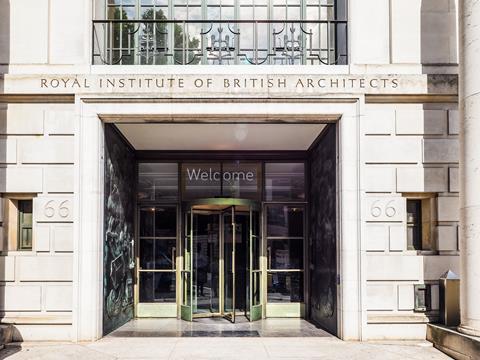
Small enthuses: “Just the thought of this programme makes me come alive. As an architect myself, I understand the experiences our SMEs are currently facing. In my previous role at RIBA, I could support them to a certain point, but now, at LSA, it’s an opportunity to be a little bit of a rebel, to do what I really want to do – to really shake things up and change things.”
“Being given the freedom to design something I know will have a positive impact, for not just my peers but the industry as a whole, is great,” she explains. “It feels like in partnering with the LSA, I have permission to disrupt.”
“And that is really exciting,” adds Small. “The potential scope of the ripple effect of what this can achieve is enormous. And it’s going to call for accountability, transparency and honesty from everyone – from the whole industry.”
Permission to experiment
LSA offers a range of innovative training programmes for both Part 2 students, qualified practitioners and built environment professionals from across the industry. The Good Growth in Practice programme is being guided by an advisory board of industry experts chaired by Central director Patricia Brown.
Small says: “This whole pilot programme is something of an experiment. I’m not afraid to make mistakes. I’m being given permission to experiment and make mistakes all under the aegis of the LSA, supported by the GLA and The Crown Estate, and the advisory board that we have. It’s a real honour and a privilege – and I can’t wait to get started.”
Small adds: “We want to emphasise that the programme is open to practices within the wider built environment, not just architects. That’s where we’ll get some great cross-pollination of ideas.”
How to apply
If you’re interested in applying for the new scheme, get your application in fast because the deadline is 31 January 2025. You can apply for the scheme here.
>> Also read: LSA launches ‘Part 4’ modular lifelong learning programme for built environment professionals
>> Also read: LSA launches radical new strategy for architectural education


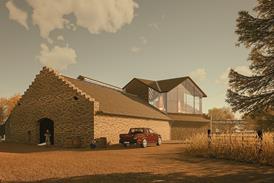
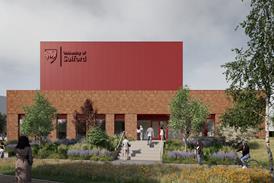
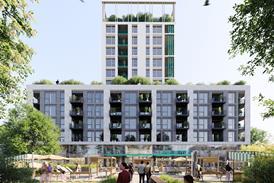
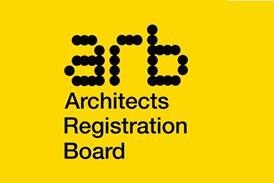










No comments yet